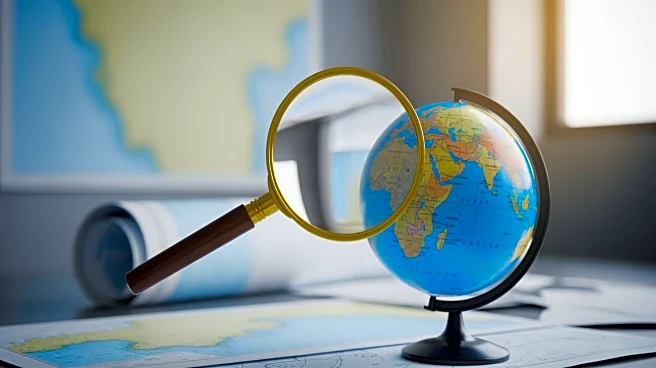What's Happening?
The International Maritime Organization (IMO) has initiated the IMSAS audit of Panama, aiming to ensure uniform implementation and enforcement of international maritime instruments. This audit, mandatory
for all IMO Member States since 2016, is being conducted from October 13 to 20, 2025. The focus areas include maritime safety, marine environmental protection, and the training and certification of seafarers. Alexander De Gracia, Deputy Administrator of the Panama Maritime Authority (PMA), highlighted the audit as an opportunity to reinforce Panama's leadership in maritime administration. He emphasized the audit as a demonstration of trust, shared responsibility, and commitment to continuous improvement for the international maritime system.
Why It's Important?
The audit is significant as it underscores Panama's role in global maritime governance, ensuring compliance with key conventions such as SOLAS, MARPOL, and STCW. This initiative reflects Panama's dedication to maintaining high standards of safety and environmental protection in maritime operations. The audit not only strengthens Panama's maritime administration but also contributes to the broader international maritime system's transparency and sustainability. Stakeholders in the maritime industry, including shipping companies and environmental groups, stand to benefit from improved compliance and governance.
What's Next?
Following the audit, Panama is expected to implement recommendations to enhance its maritime operations further. The results may lead to policy adjustments and increased collaboration with international maritime bodies. The audit's findings could influence future maritime regulations and practices, impacting global shipping routes and environmental policies. Stakeholders, including maritime authorities and international organizations, will likely monitor the outcomes closely to assess Panama's progress and its implications for global maritime standards.
Beyond the Headlines
The audit highlights the importance of international cooperation in maritime governance. It may prompt other countries to review their compliance with IMO standards, fostering a culture of continuous improvement and shared responsibility. The focus on environmental protection aligns with global efforts to combat climate change, emphasizing the maritime sector's role in sustainable development. This initiative could lead to long-term shifts in maritime policies, promoting safer and more environmentally friendly practices worldwide.










